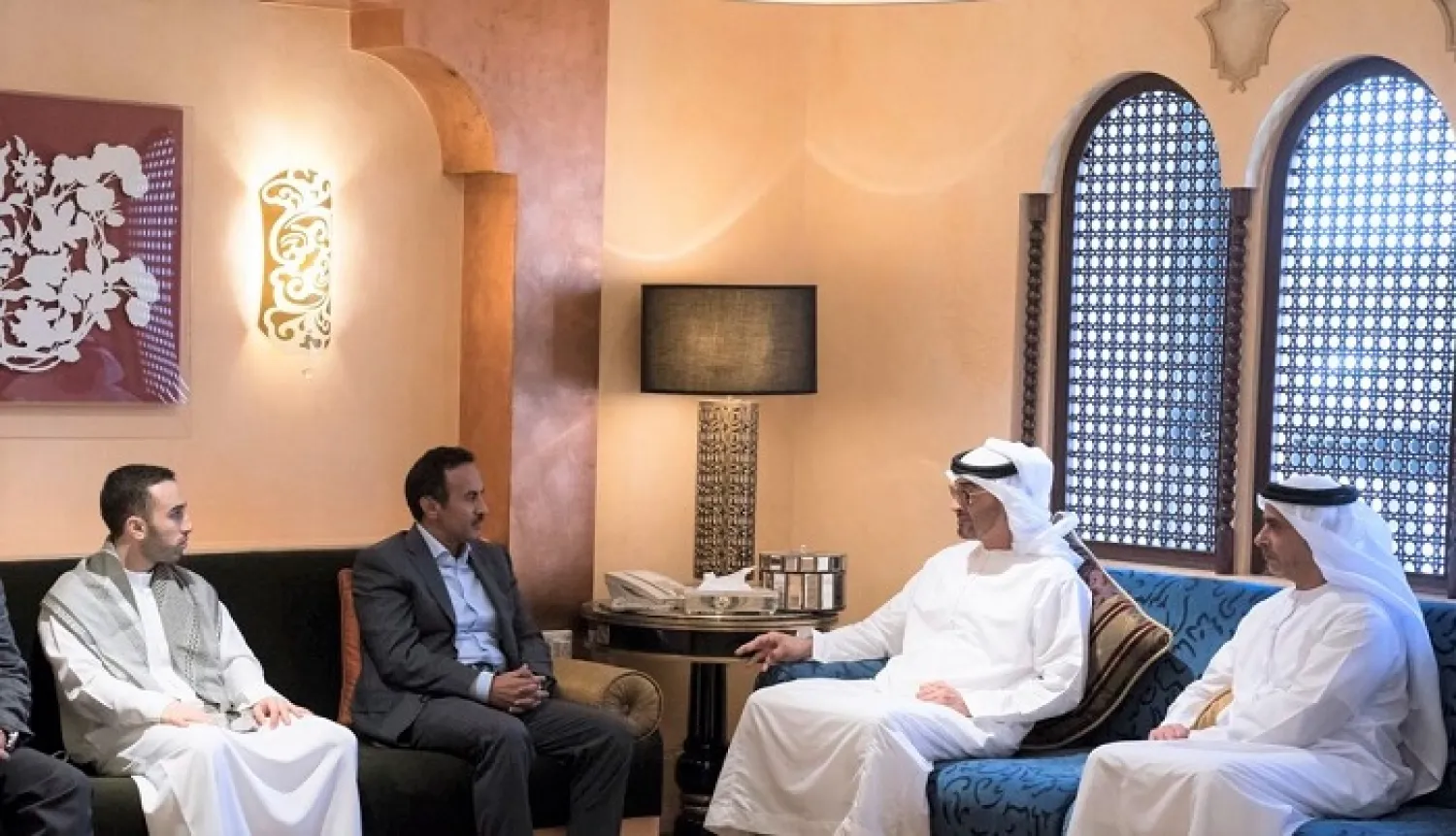Crown Prince of Abu Dhabi and Deputy Supreme Commander of UAE Armed Forces Sheikh Mohammed bin Zayed Al Nahyan offered his condolences to Ahmed Ali on the death of his father, Yemen president Ali Abdullah Saleh.
While visiting Ahmed Ali Saleh at his residence in Abu Dhabi, Sheikh Mohamed bin Zayed expressed his heartfelt condolences to the family of the deceased and Yemeni people, praying to Allah to spread safety and security in Yemen.
Also offering condolences along with Sheikh Mohamed were Deputy Prime Minister and Minister of the Interior Lt. General Sheikh Saif bin Zayed Al Nahyan, Deputy Prime Minister and Minister of Presidential Affairs Sheikh Mansour bin Zayed Al Nahyan, Deputy Secretary-General of the Supreme National Security Council Ali bin Hammad al-Shamsi, and Under-Secretary of the Abu Dhabi Crown Prince’s Court Mohamed Mubarak al-Mazrouei.
Ahmed Ali, 45, a former commander of Yemen’s elite Republican Guards, served as Yemen’s ambassador to UAE in 2012.
During his father's eulogy, Ahmed said that the president died in his house while fighting carrying his weapon.
He vowed to confront enemies of the homeland who were responsible for killing his father and "are trying to obliterate its identity and its gains and to humiliate Yemen and Yemenis”.









